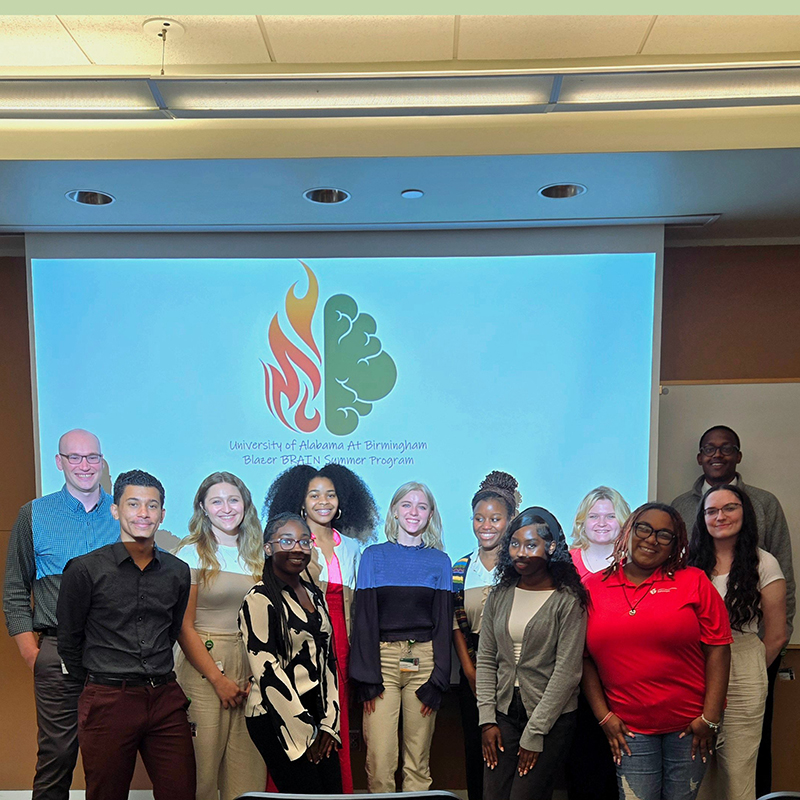Blazer BRAIN is an eight-week undergraduate summer program that offers students an opportunity to conduct research and participate in an intensive professional development program as they work towards earning their Ph.D. in neuroscience.
The program is co-directed by Cristin Gavin, Ph.D., associate professor and vice chair for education in the Department of Neurobiology, and John Shacka, Ph.D., associate professor in the Department of Pharmacology and Toxicology.
This year’s cohort was co-led by Jonathan Roth, Ph.D., assistant professor in the Department of Neurobiology.
Blazer BRAIN scholar
As a Blazer BRAIN scholar, students are invited to work in a lab conducting high-quality neuroscience research. They receive mentoring from study PIs, peers, and program alumni while also being compensated for their work.
“When working with our scholars, we strive to equip them with the best knowledge and tools they need to become the next generation of neuroscientists,” says Gavin. “Each year, we welcome energetic students eager to learn and make a difference outside their lab studies. It is up to us to ensure that they understand how they can move forward in the field of neuroscience.”
To build on the program’s impact, Roth states that “scholars receive both scientific and professional development training. Specifically, they join a lab where they are mentored by UAB faculty and students to learn valuable lab techniques and scientific thinking while working on an ongoing neuroscience project.”
During their time at UAB, scholars learn how to best prepare for their graduate school application and have the opportunity to present their research findings at the UAB Summer Expo and National ABRCMS Conference.
Shacka, who maintains a strong teaching and service mission at UAB, highlights the importance of offering opportunities like this to scholars. "Our scholars come from different institutions where opportunities like these do not always present themselves. Our program not only advances knowledge but also impacts scholars' personal lives.
Roth adds, “beyond their lab work, we give scholars feedback on their abstracts and personal statements and walk them through best practices for their application packet, along with discussing what a career in biomedical research actually looks like.”
Shaping the future of neuroscience
Roth worked closely with Gavin and Shacka to review and select this year’s scholars.
Reflecting on his experience with the scholars, Roth shares, “I loved the face-to-face interactions that I had with the scholars as we discussed career paths, graduate school applications, and science more broadly. It was so exciting to see how bright and motivated the scholars were as they presented their work, and I love the connections that they made within the neuroscience community on and off-campus.”
Because of the practical skills and invaluable mentoring, Blazer BRAIN is great for anyone looking to pursue a Ph.D. in neuroscience. The program offers a collaborative experience at a top biomedical research institution and allows for relationship building and networking.
To stay updated and learn more about applying for next year’s program, click here.